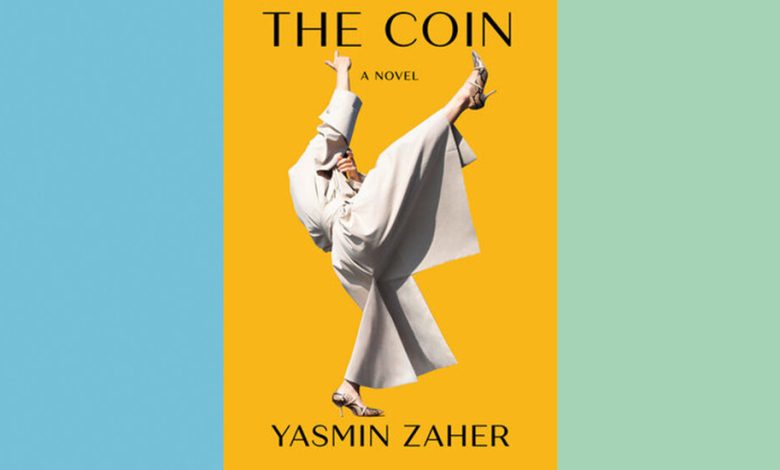A Debut Novel That Skewers Capitalism, One Scalped Birkin at a Time

THE COIN, by Yasmin Zaher
Halfway through Yasmin Zaher’s debut novel, “The Coin,” the unnamed narrator, a Palestinian schoolteacher in New York City, arrives at the Hermès flagship store on Paris’s Rue Saint-Honoré to buy a Birkin.
“Every year, regardless of poverty, war or famine, the price of the Birkin bag increases,” she explains. “Its value is more solid than gold or the S&P 500, and the luxury house of Hermès has achieved this by only selling to a very small and particular group of people.”
She already has one, a larger size in black, inherited from her mother, who died in a car crash in Palestine, along with her father. (He, in turn, left her millions of dollars that she cannot access except by allowance from her patronizing older brother.) She’s here to purchase another as part of a mission concocted by her homeless grifter situationship, a man she simply calls Trenchcoat, to buy Birkins and “sell them at a premium to the trashy and unworthy.” Like if Robin Hood stole status from the rich to give to the poorly dressed.
What does this high-end accessories market have to do with the narrator’s dream about the fatal shooting of the 12-year-old Gazan Muhammad al-Durrah in 2000, at the start of the second intifada? Or with her own rootlessness, her parentless exile from a place in which her family had already been exiled for generations? Zaher’s smart, sneering novel of capital and its consequences answers: Everything.
It is sometime after 2016 and the narrator has recently left Palestine, able to “get out” thanks to the rich Russian boyfriend she’s kind of cheating on with Trenchcoat.She carries her Birkin to her teaching job along with a CVS shopping basket filled with supplies for her Sisyphean campaign to stay clean in a city that — unlike her hygienic, upper-class Palestinian milieu — “embraced the dirt like it was an aesthetic.”
In a spiraling, hallucinogenic plot, “The Coin” draws a dotted line between the narrator’s grandmother’s garden in Palestine and a splatter of excrement on New York City subway tiles; between her grandfather’s birthplace of Bisan — “now a low-income town in Israel, housing mostly Jewish families from Morocco and no Palestinians” — Stokely Carmichael and a Gucci window display appropriating the language of revolution (“Liberté! Égalité! Sexualité!”).